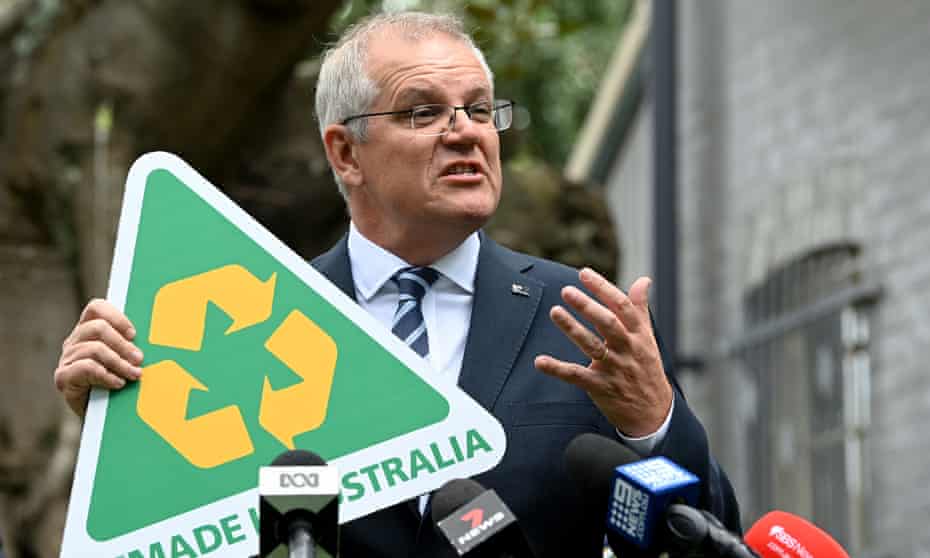The corrosion of trust in information threatens to divide us, undermine our efforts to mediate our differences and respond to collective challenges.

While the showdown with a mutating virus may have hogged the political limelight this year, there has been another global outbreak which may have an even more profound impact on our collective wellbeing: the corrosion of trust in information.
Where once access to information was regarded as a self-evident liberating force, we appear to have reached an inflection point where exponential growth in flows of content is clogging our public square in muck.
This is a contagion that threatens to divide us, undermine our efforts to mediate our differences and respond to our collective challenges, anchored to a commonly agreed set of facts.
The impact on our civic spaces has hit us in waves over the past 12 months, from the attacks on the US Capitol over a “stolen” presidential election, to the fervent anti-vaxxer protests, to our own government’s stubborn refusal to address climate change.
While the voices that dominate these outbreaks of collective madness may appear to come from the fringes, their impact is shared in an unrelenting diminution of our trust in institutions – and ultimately in each other.
After a short renaissance in public trust in 2020, figures in this week’s Guardian Essential Report show the majority of Australians end the year with little or no trust in the information we receive from government, with similar disdain for the output of the traditional news media and other institutions involved in public discourse.
As we enter the pointy end of the political cycle, this becomes an acute challenge with the real potential to influence the ultimate outcome of the election. Like a utility delivering dirty drinking water, we enter this critical moment unsure of the quality of what we are consuming.
While scientists maintain high regard for their information, there are a still quarter of Australians who say they have little or no faith in people whose careers are dedicated to separating the facts from the feelings.
Despite our relative success in managing the pandemic, other questions in this week’s poll show the consensus around public health measures declining as the Omicron variant threatens to take hold.
Pointedly, the trade in vaccine disinformation has created a new fault line to divide around, with majority support for establishing a two-tier health system where the unvaccinated would be asked to pay for any Covid treatment.
These results also show there is a particular disdain for the digital platforms that have built their unimaginable wealth and influence by monetising division and anger in an effort to extract and then sell our attention to the highest bidder.
In a separate question there is majority support for measures to regulate social media platforms and disrupt their model of collecting user information. There is also a growing appetite for the government to play a role in supporting alternative networks that operate in the public, rather than a commercial interest.
As QUT academic Axel Bruns argues in his contribution in a new book of essays released by the Australia Institute’s Centre for Responsible Technology, The Public Square Project, providing independent researchers with access to the secret “black box” of platform algorithms is essential if we are to secure a clean supply of information.
Bruns, who works to chart the flow of disinformation through social networks, argues a critical driver of conspiracy is the interaction with traditional media and public figures, be they elected officials or celebrities.

To its credit, the Morrison government has bookended 2021 with attempts to place greater responsibility on to the platforms, first with the news media bargaining code forcing the platforms to fund journalism and more recently, with measures to force greater responsibility for the behaviour of users online.
But the way the prime minister approaches the election campaign will be just as telling as any legislative push. Already he appears to be conjuring his own virtual reality, where Gladys Berejiklian is the victim of a kangaroo court, Labor’s climate plan will destroy the economy and household prices will inevitably rise if he is no longer in control.
A real leadership test as the election heats up would be to self-moderate these flows of disinformation and vitriol rather than micro-targeting lies and anger at vulnerable voting groups.
Last time it was Death Taxes, the previous election it was Labor’s “Mediscare”, each brutally effective confections. Each success in political disinformation builds on the next until elections cease to be a contest of real ideas, but a cartoon cut-out of tropes and cliches.
Elections are rarely won pretty, but Trump showed there is a limit to – and consequence of – fully embracing the ugly. A multi-partisan commitment to ending the digital disinformation arms race would be a transformative commitment to a reality-based future from all sides.
No comments:
Post a Comment